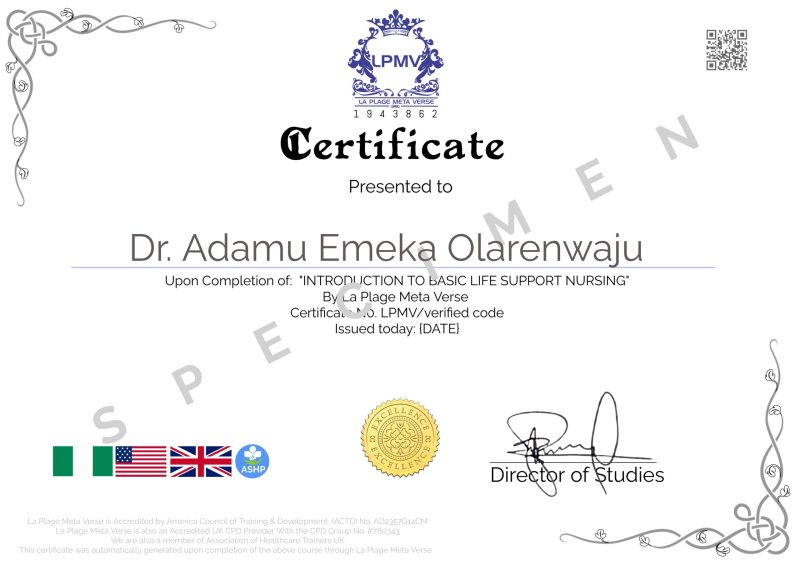Course Overview
A course overview for a Personal Support Worker (PSW) typically encompasses a comprehensive curriculum designed to equip students with the essential skills and knowledge required to provide care and support to individuals in healthcare settings.
A course for Personal Support Workers aims to prepare individuals with the necessary competencies to provide compassionate, safe, and effective care to diverse patient populations across various healthcare settings. It equips them not only with technical skills but also with the interpersonal and ethical foundations needed for a fulfilling career in healthcare support.
What you will Learn
Role and Responsibilities:
- Understanding the scope of practice and legal responsibilities.
- Providing assistance with activities of daily living (ADLs) such as bathing, dressing, grooming, toileting, and feeding.
Patient Care Skills:
- Techniques for safe patient transfers, positioning, and ambulation.
- Monitoring and reporting changes in patient health status.
Healthcare Settings:
- Familiarity with different healthcare environments including hospitals, long-term care facilities, and community settings.
- Adapting care practices to various settings and patient needs.
Communication and Interpersonal Skills:
- Effective communication with patients, families, and healthcare team members.
- Building rapport and maintaining professional boundaries.
Safety and Infection Control:
- Principles of infection prevention and control.
- Safe handling of medical equipment and maintaining a clean environment.
Personal Care Techniques:
- Basic wound care and hygiene practices.
- Understanding and responding to patient needs sensitively.
Emergency Response and First Aid:
- Basic first aid procedures including CPR (Cardiopulmonary Resuscitation) and emergency response protocols.
Ethical and Legal Considerations:
- Respecting patient rights and confidentiality.
- Ethical decision-making in caregiving situations.
Specialized Care:
- Palliative care principles and end-of-life support.
- Care techniques for patients with dementia and other specialized needs.
Documentation and Record-Keeping:
- Keeping accurate records of patient care activities and observations.
- Understanding the importance of documentation in healthcare settings.
Professional Development:
- Continuous learning and updating skills according to industry standards.
- Understanding the importance of self-care and preventing caregiver burnout.
Who Should Learn
Individuals Interested in Healthcare:
- Anyone passionate about helping others and working in healthcare settings.
Career Changers:
- Those looking to transition into a rewarding career in healthcare.
High School Graduates:
- Students interested in a practical and hands-on career right after graduation.
Adult Learners:
- Individuals seeking a career change or looking to re-enter the workforce.
Caregivers and Home Health Aides:
- People already providing informal care to family or friends and want formal training.
Compassionate Individuals:
- Those with a caring and empathetic nature who enjoy working closely with people.
People Skills:
- Individuals with strong communication and interpersonal skills.
Detail-Oriented Individuals:
- People who can pay attention to detail, follow instructions, and document information accurately.
Team Players:
- Those comfortable working collaboratively in a healthcare team environment.
Flexible and Adaptable:
- Individuals who can adapt to different patient needs and healthcare settings.
Emotionally Resilient:
- People who can handle the emotional demands of caregiving with professionalism and compassion.
Continuous Learners:
- Individuals committed to ongoing professional development and lifelong learning in healthcare.
Career Opportunities
Home Care Agencies:
- Providing care to clients in their homes, assisting with daily living activities.
Long-Term Care Facilities:
- Working in nursing homes or assisted living facilities, supporting elderly residents with personal care and daily tasks.
Hospitals:
- Assisting patients with mobility, personal hygiene, and other activities under the supervision of nurses.
Community Health Centers:
- Supporting patients in community settings, including rehabilitation centers and outpatient clinics.
Hospice Care:
- Providing compassionate care to terminally ill patients and their families, focusing on comfort and quality of life.
Schools and Educational Institutions:
- Assisting students with special needs or disabilities, ensuring their well-being and participation in educational activities.
Group Homes and Shelters:
- Supporting individuals with disabilities, mental health challenges, or those in crisis situations, promoting independence and stability.
Respite Care Services:
- Offering temporary relief to family caregivers by providing care and support to their loved ones.
Palliative Care Settings:
- Providing care to patients with serious illnesses, focusing on pain management, comfort, and emotional support.
Private Duty Care:
- Working directly for individuals or families who require ongoing care and assistance at home.
Rehabilitation Centers:
- Assisting patients recovering from injuries or surgeries, helping them regain independence and mobility.
Adult Day Programs:
- Supporting older adults or individuals with disabilities during daytime activities and socialization programs.
Correctional Facilities:
- Providing healthcare services to inmates who require medical and personal care assistance.
Mental Health Facilities:
- Supporting individuals with mental health conditions in residential or outpatient settings, promoting stability and recovery.
Healthcare Staffing Agencies:
- Offering temporary or permanent placements in various healthcare settings based on client needs.
Prerequisites
This course does not require participants to have a specific entry requirement. Those who are interested can sign up.
Course Duration & Online Support
Duration depends on the learner’s ability to cope with the pace and scope of the course. Self-study allows participants to complete the course at their own pace. Support extensions are also available if students fail to do so within that period.
Assessment
To successfully complete the course, students are required to complete various tests and assessments. You may be required to get a link from our Training Provider. Your test will be reviewed and graded by our system. You may attempt only twice.
Get a Completion Certificate.
La Plage Meta Verse is an Internationally Accredited Institution.
REGISTRATION NUMBER: 1943862
ACCREDITATION
LPMV is ISO 9001 Quality Management System Certified Business
LPMV is a member of Association of Healthcare Trainers (AOHT) UK
LPMV is also an Accredited CPD Provider With the CPD Group No. #780343
LPMV is Accredited by America Council of Training & Development (ACTD) No. AD2357G14CM
Upon successful completion of the course, students will be able to gain an international Accredited Certificate. Share your certificate with prospective employers and your professional network on all social media platforms.

